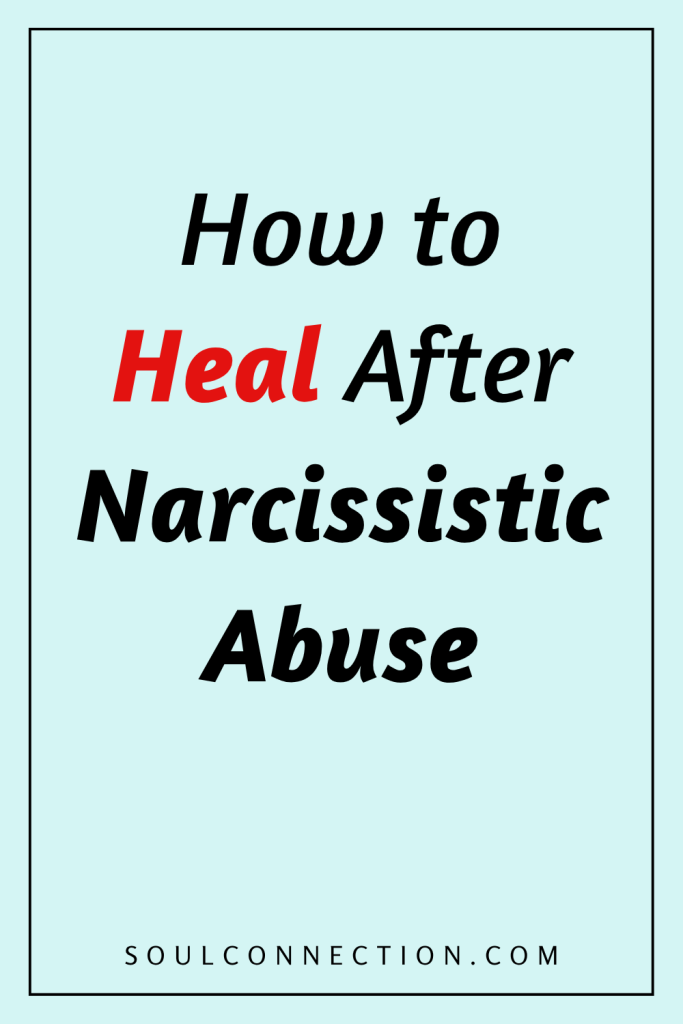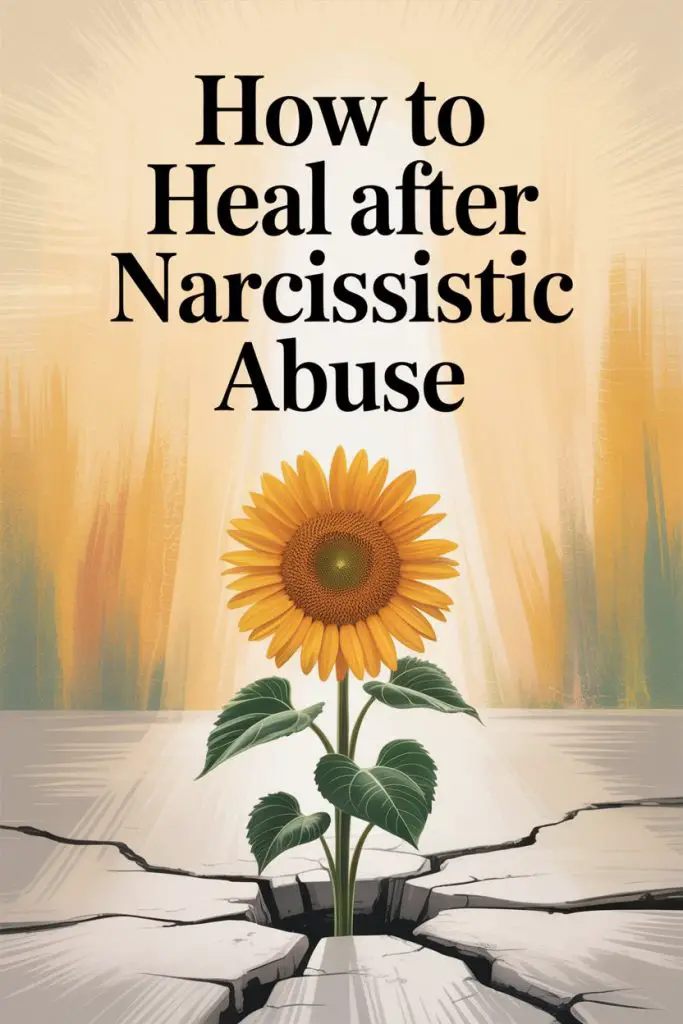Narcissistic abuse is something you wouldn’t wish on your worst enemy.
It leaves its mark in invisible bruises: warped self-esteem, trust issues that could fill a small library, and the lingering suspicion that your next date might actually be a lizard in a trench coat.
Healing isn’t linear or pretty or even particularly Instagrammable. But it is possible, and it’ll feel so sweet when you finally get the upper hand on your own story.
Here’s how you get there—without needing to join a Himalayan monastery or spend the next decade dissecting your feelings with a group of goats.
Recognising What Just Happened
Escaping narcissistic abuse is sort of like stumbling out of a funhouse—except none of it was fun, and you were very much the only clown.
Gaslighting, love bombing, blame-shifting: these are words you never thought you’d need, yet here we are.
Labeling the experience for what it was is essential. “Was that really abuse?” Yes, love, it really was. Emotional abuse counts, and the scars are real, even if you can’t circle them with a red pen.
Reading up on narcissistic traits, finding validation through survivor stories, or talking to people who get it can help shift the blame off your shoulders. Spoiler: It wasn’t you.
Rebuilding Your Sense of Self
Narcissistic abuse does a number on your self-esteem. After years (or even months) of being told you’re the problem, you might start to believe you’re basically human garbage with opposable thumbs.
This is where you start to become reacquainted with the person you were before the narcissist rewrote your narrative.
Small things help: try new things, revisit old hobbies, or treat yourself as if you’re someone you actually like. (A wild idea, but stick with it.)
Mirror pep talks might feel cringe, but sometimes your reflection needs to hear, “You’re a bloody legend.” Even if you have to fake it until you believe it.
Creating Safe Boundaries
If the word “boundaries” makes you want to roll your eyes, congratulations—you’ve probably never had one respected in your life. Now’s the time to change that.
Boundaries are not an act of war. They’re more like polite “Do Not Disturb” signs for your sanity. Practice saying no. Block, mute, unfollow, and delete until your phone is free of emotional landmines.
If you need to limit or cut off contact entirely, especially in the case of co-parenting or shared circles, it’s not dramatic. It’s survival.
And for anyone calling you “too sensitive” or “selfish,” just remember: those are usually the people who benefitted the most from your lack of boundaries. Cheeky, eh?
Finding Your People
Abuse thrives in isolation. Narcissists are experts at making you feel like nobody else could possibly understand, or worse, that nobody else would care.
The antidote? Community. Find support groups, survivor meet-ups, or online forums where you don’t have to explain why you’re a bit jumpy around compliments.
If you’re not a group hug type, even one understanding friend is a start.
Therapists (the good ones) are worth their weight in gold. They’ll help you sort through the rubble without gaslighting you—bonus.
Untangling the Guilt and Shame
Somewhere along the line, you picked up a suitcase full of guilt that doesn’t even belong to you. Narcissists are world-class projectionists, and they love to cast you as the villain in their never-ending drama.
Try this: whenever you find yourself apologising for things that weren’t your fault, pause and ask, “Is this really mine to carry?” Spoiler: nine times out of ten, it isn’t.
Journaling helps. So does literally writing down the things you’re blaming yourself for and then tossing them in the bin (or burning them, if you’re feeling extra witchy).
Shame can’t survive being spoken out loud to someone safe. Find that someone. Tell your story.
Relearning Trust
After narcissistic abuse, trusting anyone again can feel like volunteering as tribute in a very rigged Hunger Games.
Every new person is a potential landmine, every compliment is suspect, and every disagreement feels like the start of a new reign of terror.
Start small. Trust people with little things—the kind of trust that won’t cost you your sanity if it’s betrayed. Watch for consistency over time, not just words. Let people show you who they are.
And remember: you have better radar now. Red flags actually look red. You might even spot a few beige ones, just for fun.
Reclaiming Joy and Pleasure
When your life has been micromanaged by someone else’s whims, even small pleasures can feel suspicious.
Did you really enjoy that coffee, or are you just pretending? Is it okay to laugh, or will you be told you’re “too much” again?
Recovery means rediscovering joy on your own terms. Watch silly movies. Eat the cake. Dance in your kitchen (badly).
Fill your life with what makes you happy, not what kept your abuser happy.
It’s hard at first, but happiness is a muscle. The more you use it, the stronger it gets.
Forgiving Yourself for Not Seeing the Signs
Nobody wakes up thinking, “You know what would be fun? Dating a narcissist.” The manipulation is slow, subtle, and tailored just for you.
The fact that you stayed doesn’t mean you’re weak; it means you’re human.
Let yourself off the hook for the times you missed the signs, ignored your gut, or made excuses. Hindsight is annoyingly 20/20.
Your present self knows better because your past self did her best with the information she had.
Self-forgiveness is the ultimate act of rebellion. The narcissist wanted you to doubt yourself forever. Show them you’re onto new things now.
Moving Forward Without Looking Back Every Ten Seconds
Healing doesn’t require perfection. You will have days when you wonder if you’re really over it, or if you’ll ever trust someone again without checking their birth chart for “Narcissist Rising.”
Progress isn’t measured in leaps, but in baby steps: the first time you say no without guilt, the first time you laugh without fear, the first time you notice red flags and walk away.
If you slip up, offer yourself the same grace you’d give a friend. Progress is messy, but so is life. That’s what makes it worth living.
Owning Your Story
Narcissistic abuse tries to write your story for you: always the villain, never the hero. Taking back the pen is the bravest thing you’ll ever do.
You survived on scraps of self-worth and still managed to get out. Now, you get to decide how your story goes from here. Will there be setbacks? Probably.
But there will also be days where you’re so proud of how far you’ve come, you’ll want to shout it from the rooftops.
Or, you know, at least text a mate.
Life After Narcissistic Abuse
Healing is messy, non-linear, and often makes you question your sanity (again). Yet with every day that passes, you reclaim a little more of yourself.
You realise that love isn’t supposed to hurt, boundaries aren’t a crime, and the right people will never make you feel small.
You’re not broken. You’re rebuilding.
And the you who comes out the other side? That’s someone worth fighting for.
Here’s to your comeback story. And may all your future relationships be gloriously boring—in the best way possible.


